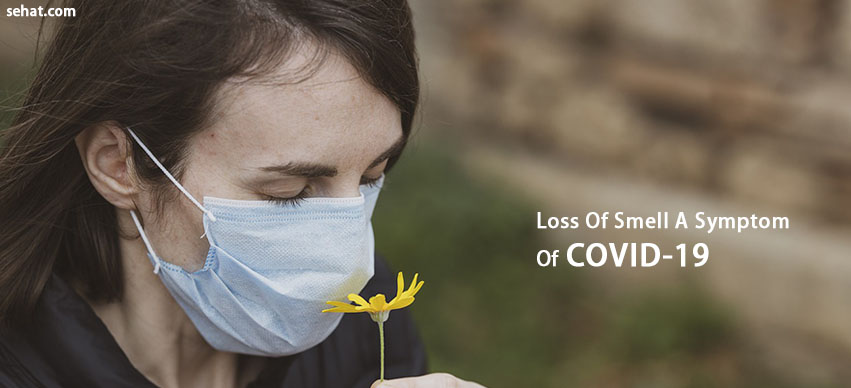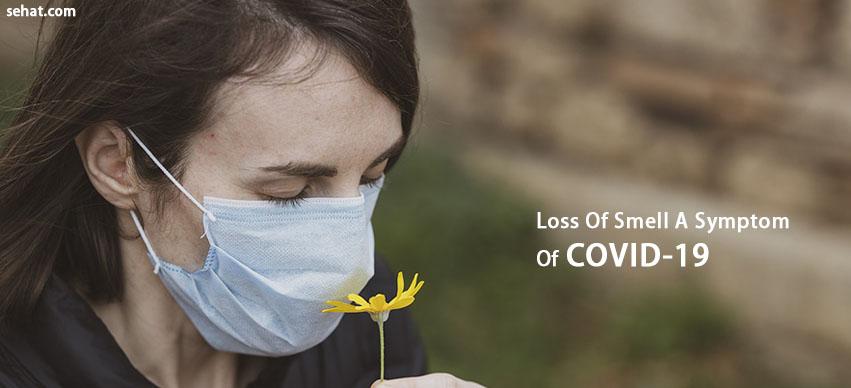Nanoparticle Therapy – An Emerging Cancer Treatment
5 Min Read


The ongoing coronavirus pandemic caused by severe acute respiratory distress syndrome Coronavirus 2 (SARS-CoV-2) emerged from East Asia has spread to the rest of the world, affecting millions of people worldwide. According to clinical studies, the most common signs and symptoms of coronavirus infection are;
Several people globally are getting tested positive for COVID-19 displaying very mild symptoms or even no symptoms at all. There is newer evidence that loss of smell is a symptom of Coronavirus infection.
In view of this new finding, this article will answer one of the most commonly asked questions “is loss of smell a symptom of Coronavirus?â€. This article will also help you understand how Coronavirus can affect the sense of smell and taste and when to see a doctor under such circumstances.
Partial or total loss of sense of smell is also called “anosmiaâ€. Post-viral loss of smell is a common occurrence and is responsible for nearly 40% of cases of anosmia. Viruses like rhinovirus, parainfluenza Epstein Barr virus and some coronaviruses cause upper respiratory tract infections and the common cold is known to cause post-infectious loss of smell.
Coronavirus is thought to account for at least 10-15% cases of loss of smell. There is plenty of evidence from cases reported by countries like China, Italy and South Korea that a significant number of patients affected with coronavirus have developed loss of smell or reduced sense of smell.
There has also been a significant number of patients who report only with anosmia and no other symptom. Such patients may become potential carriers of COVID-19 infection as they do not meet any current criteria for self-isolation or testing. Therefore, it is quite evident that loss of smell is a symptom of Coronavirus infection.
The underlying mechanisms that lead to loss of smell and taste among patients with coronavirus infection is still unknown.
Yet, the virus has been identified as belonging to the family of viruses associated with loss of smell. Some findings also suggest that inflammation of the Olfactory nerve and nasal obstruction were one of the causes of loss of smell from coronavirus infection.
Microscopic examination of nasal mucosa in patients infected with COVID-19 shows loss of hair-like endings from sensory receptors due to which patients are unable to perceive odors.
Research studies have verified a significant association between Coronavirus infection and loss of smell and taste.
Nasal symptoms included nasal obstruction and runny nose. In about 11% cases, nasal symptoms appear before the rest of the complaints and if helpful for early detection of infection. Acute Congestion due to coronavirus infection may cause temporary loss of smell and taste.
Olfactory (symptoms of nose or smell) and gustatory (related to the sense of taste) symptoms usually appear before, during or after general symptoms of COVID-19 infection along with the presence of fever with loss of smell. However, these symptoms are more common among European patients than Asians. It is also found that patients require at least 2 weeks to recover their normal sense of smell and taste.
Sudden loss of smell and taste without other respiratory symptoms is assumed to be one of the first presenting symptoms of coronavirus infection. In such cases, the person needs to self isolate and also needs to get tested for COVID-19 infection.
Conversely, loss of smell and taste can also be a consequence of Coronavirus infection. The study of cases of coronavirus proves that both the sense of smell and taste recover after about two weeks; however, loss of smell may persist longer. In either case, it is important to contact your doctor for appropriate advice or medications.
Apart from viral respiratory tract infections, some other common causes of loss of smell and taste are;
A traumatic head injury is capable enough to cause loss of smell and taste. Damage to the Olfactory nerve is a common cause of loss of smell due to head injury.
These are noncancerous growths on the inner lining of the nose. These occur due to recurrent infections and allergies, or maybe a result of autoimmune diseases.
Candida infection of the oral cavity commonly results in loss of taste or altered perception of taste, burning sensation in the mouth and dryness of the mouth.
Some degree or progressive loss of taste and smell can occur as a part of aging. It can be seen among elderly people, mostly beyond 60 years of age.
Certain medications like beta-blockers and angiotensin-converting enzymes (ACE) inhibitors.
Coronavirus infection causes a sudden loss of smell and taste, in contrast to the above causes that may result in more transient or progressive loss of smell and taste.
During this ongoing pandemic, sudden loss of smell and taste could be the earliest symptoms of the infection. Therefore, it is important to visit a doctor and get yourself tested as soon as possible.
Other reasons for seeing a doctor for loss of smell and taste are;
Although symptoms of loss of smell and taste seem insignificant, they are often one of the first presentations of coronavirus infections.